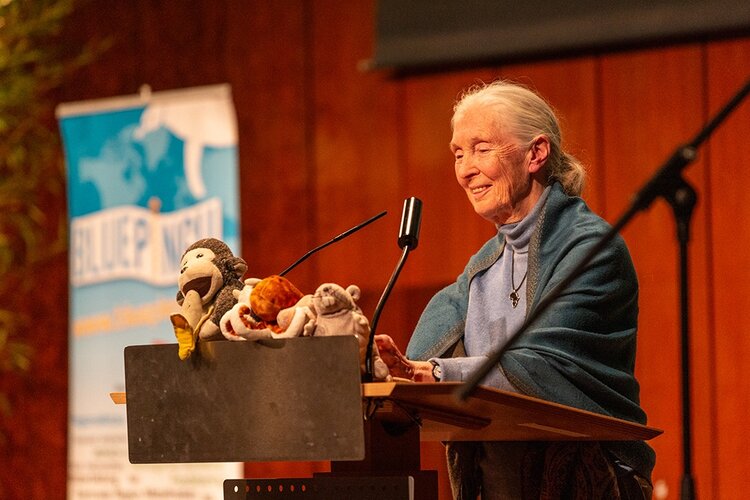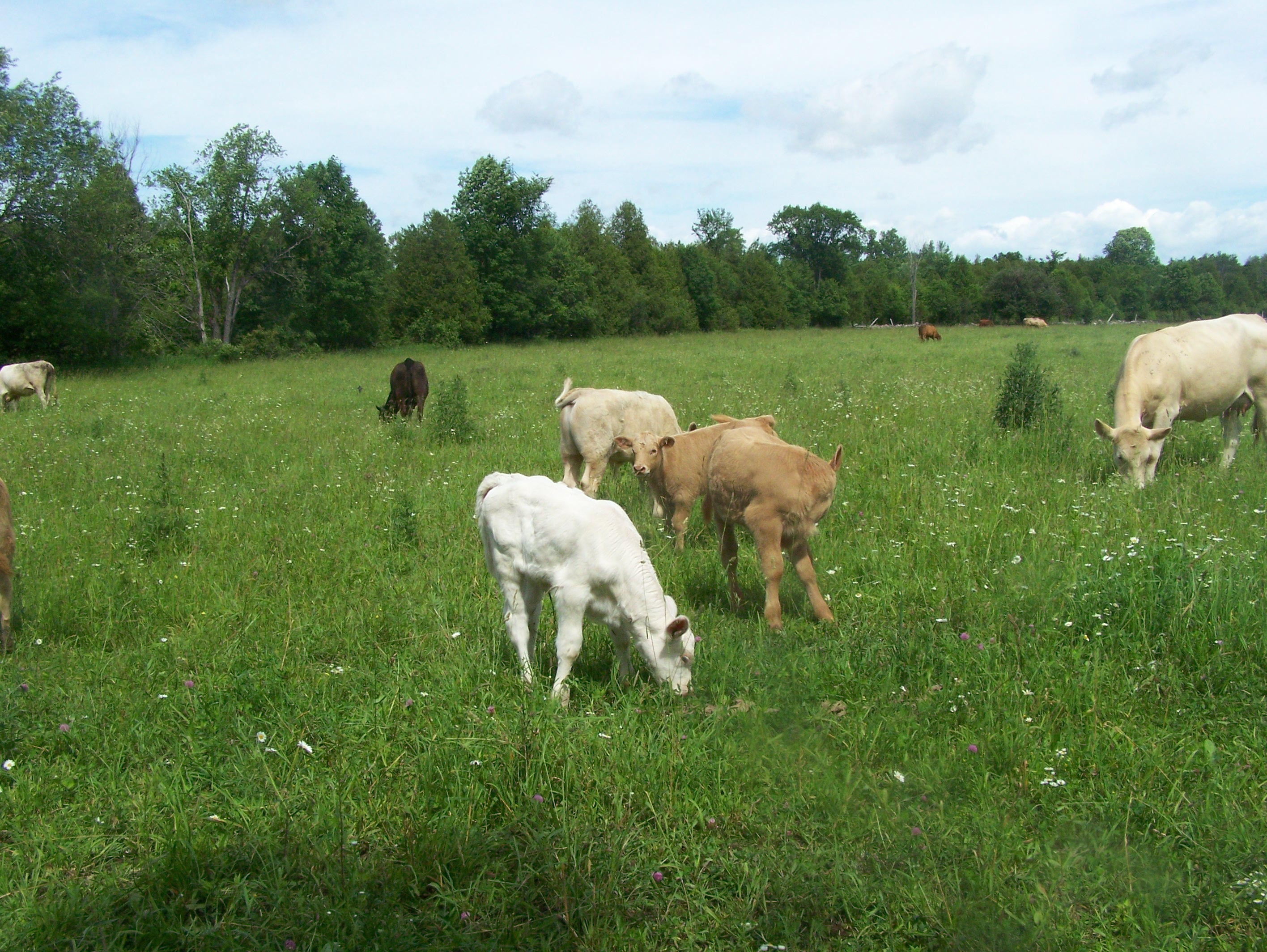This post originally appeared on Mary Wales’s blog and has been republished with her permission.
A few months ago, before all this crazy coronavirus stuff happened, I was fortunate enough to see Jane Goodall speak at Biofach 2020 in Nuremberg, Germany. She was, without a doubt, one of the main reasons I travelled to Germany to attend Biofach.

Seeing her keynote presentation filled me with hope for our planet, and for all those working for greener agriculture and a better food system, especially an organic and more plant-based one. I also learned that she is a vegetarian, which is pretty cool!
Why Jane Godall Became A Vegetarian
Jane is known for her longstanding work with chimpanzees, which she started doing in the 1960s. Having lived alongside these animals in the forests of Africa for research purposes, she really seems to have developed a fondness and appreciation for all animals. While she didn’t say the exact reasons why she became a vegetarian during her keynote presentation, she did say that intensive farms for animals have been likened to “concentration camps” for animals. She also pointed out that pigs are as intelligent as dogs, which I’m sure was news to many in the audience (myself included).
In a blog post authored by Jane Goddall herself titled, “Why I Became A Vegetarian (And Why We Should All Eat Less Meat)“, she writes:
I stopped eating meat some 50 years ago when I looked at the pork chop on my plate and thought: this represents fear, pain, death. That did it, and I became an instant vegetarian.
Jane Goodall on not eating meat
She also writes that there are three main reasons we should eat less “or preferably no” meat: 1) to get rid of factory farms, where animals aren’t treated well, 2) to reduce the damage the meat industry inflicts on our environment and climate change, and 3) to improve human health.
Why Vegetarianism Is Better for Our Planet and Animals
Jane certainly isn’t the first person to say that vegetarianism and no or even less meat is better for the planet. But why is it better?
Animal agriculture needs a lot of resources: water for the animals, land and water to grow animal feed, land for the animals to graze on, transportation for the feed and all the animals, etc. An article published by The Guardian in 2018 points to a study that found that animal agriculture requires far more water to produce than fruits and vegetables. Producing a kilo of beef, for example, required an astounding 47 times more litres of water than growing a kilo of vegetables.
Not only that, but animal agriculture can also be a source of water pollution and it leads to deforestation and land degradation. Because of the immense resources it requires, it’s also a source of greenhouse gases, meaning it contributes to climate change.
The science is pretty clear: growing vegetables and grains requires a lot less resources, especially water, compared to growing meat. When we also think about how much meat we end up wasting, the argument for eating less or no meat seems like a pretty obvious choice.
Why We Should All At Least Try To Eat Less Or No Meat

For Jane Goodall, the arguments for eating less meat are how awful animals are treated on factory farms, to reduce the damage being caused by meat production on our environment and to improve our health.
Plenty of organizations and activists are truly appalled by how animals are treated on factory farms. Imagine living life without ever seeing the light of day or breathing in fresh air, or being a commodity viewed as a non-sentient being here just to feed humans. Sounds like a nightmare doesn’t it? This alone has led some people to choose to only eat meat from animals they know at least had a better life than a factory farm one.
In her blog post, Jane also writes how “the adverse effects of too much red meat are well known.” For anyone who thinks they 100% need meat to be healthy, I recommend watching an eye-opening documentary on Netflix called The Game Changers.
For me, I decided to eat less meat about 10 years ago when I started learning about how unsustainable meat production is. Today most of my meals are plant-based. I also grew up on a farm and even had two pet steers [male cattle] that I eventually saw off to the slaughterhouse, one of them even with a tear in his eye. As a teenager, I learned that animals certainly have feelings and they’re very aware. They know what’s going on.
If you have a dog or cat, you surely already know this, too. So why is it that we don’t view all animals on a more level playing field, especially when farming them is so bad for the environment?
Final Thoughts…
I know the meat industry will likely not like this article, but isn’t it time for us to shift to more ethical and sustainable forms of agriculture—for the animals themselves, our planet and our health? Has the time come? As Jane Goodall argued in Nuremberg, we humans got ourselves into this mess, so we need our intellect to get ourselves out of it.
I wholeheartedly agree. While a no-meat diet may be too extreme for some, eating less meat also seems like a logical step in the right direction. Luckily there are growing amounts of (tasty) plant-based products on the market!
Mary Wales is a content & social media marketer for organic and natural food brands. You can find out more about her at marywales.com.


